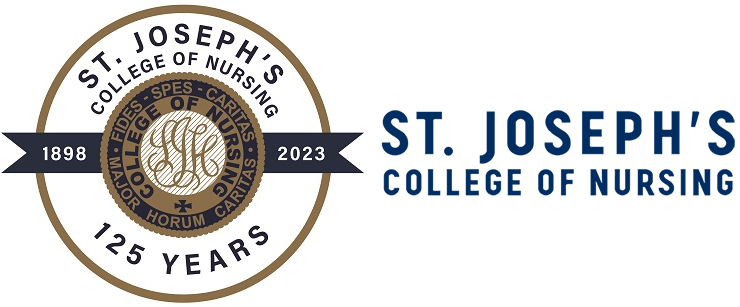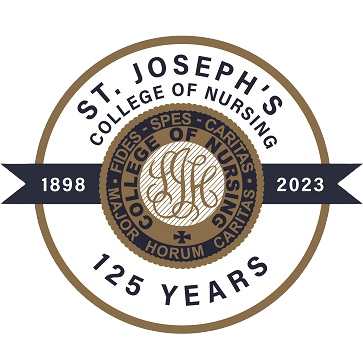Vision & Mission
Vision
The College of Nursing strives for outstanding educational outcomes exemplified by graduates who will be recognized for excellence, leadership, and compassionate care.
Mission
St. Joseph’s College of Nursing (SJCON) inspires students to become compassionate healers who demonstrate the core values of integrity, innovation, caring and excellence while embracing the principles of social justice. SJCON provides the educational foundation for students to deliver safe, holistic, client-centered care using an evidence-based and interprofessional framework in an evolving healthcare environment.
Philosophy
The philosophy of St. Joseph’s College of Nursing is congruent with the philosophy of St. Joseph’s Hospital Health Center and reflects the beliefs of the faculty and administration that each individual is Sacred and possesses inherent personal worth and dignity.
Each student is a unique being whose cultural, intellectual, developmental, and spiritual attributes affect his/her ability to seek, find, and use health information and resources in order to critically think and make decisions using evidence-based information.
Society is comprised of individuals from diverse backgrounds. The College of Nursing contributes to society by preparing graduates who advocate for health promotion, disease prevention, and treatment of acute and chronic illness in a global health care environment. Understanding and advocating for the needs of individuals, their families, and the community are essential in promoting active participation in self-care management.
Health is a dynamic state of healing; one of optimal physiological, psychosocial, and spiritual well-being. An individual’s personal definition of health is influenced by age, gender, cultural factors, and experience. An individual’s participation in self-care and health promotion behaviors is affected by his/her personal definition of health.
Nursing is an art and a science with a unique body of knowledge and skills. Caring is the foundation for all nurse- patient relationships. Nurses are responsible for promoting and maintaining a safe environment while embracing relationship-based care.
Learning is a dynamic life-long process proceeding from simple to complex allowing individuals to develop their human potential. We believe that correlation of classroom theory with clinical experience is essential. Educational activities in a student-centered environment encourage collaboration among students, faculty, and other health care professionals.
Nursing Education prepares the student to meet health care needs using the nursing process, applying critical thinking, evidence-based nursing, and clinical reasoning. Innovation provides the framework for educating students to become caring professional nurses exhibiting integrity, clinical competence, effective communication, advocacy, and ethical behavior. We strive for excellence in nursing education and prepare our graduates to be nursing leaders of tomorrow.
Faculty are committed to nursing education. Their role is to facilitate learning in a student centered culture of caring, trust, and openness, while responding to different learning styles and developmental levels. Faculty serve as role models to promote professional socialization and lifelong learning. Faculty demonstrate leadership and service in a variety of professional and community roles.



